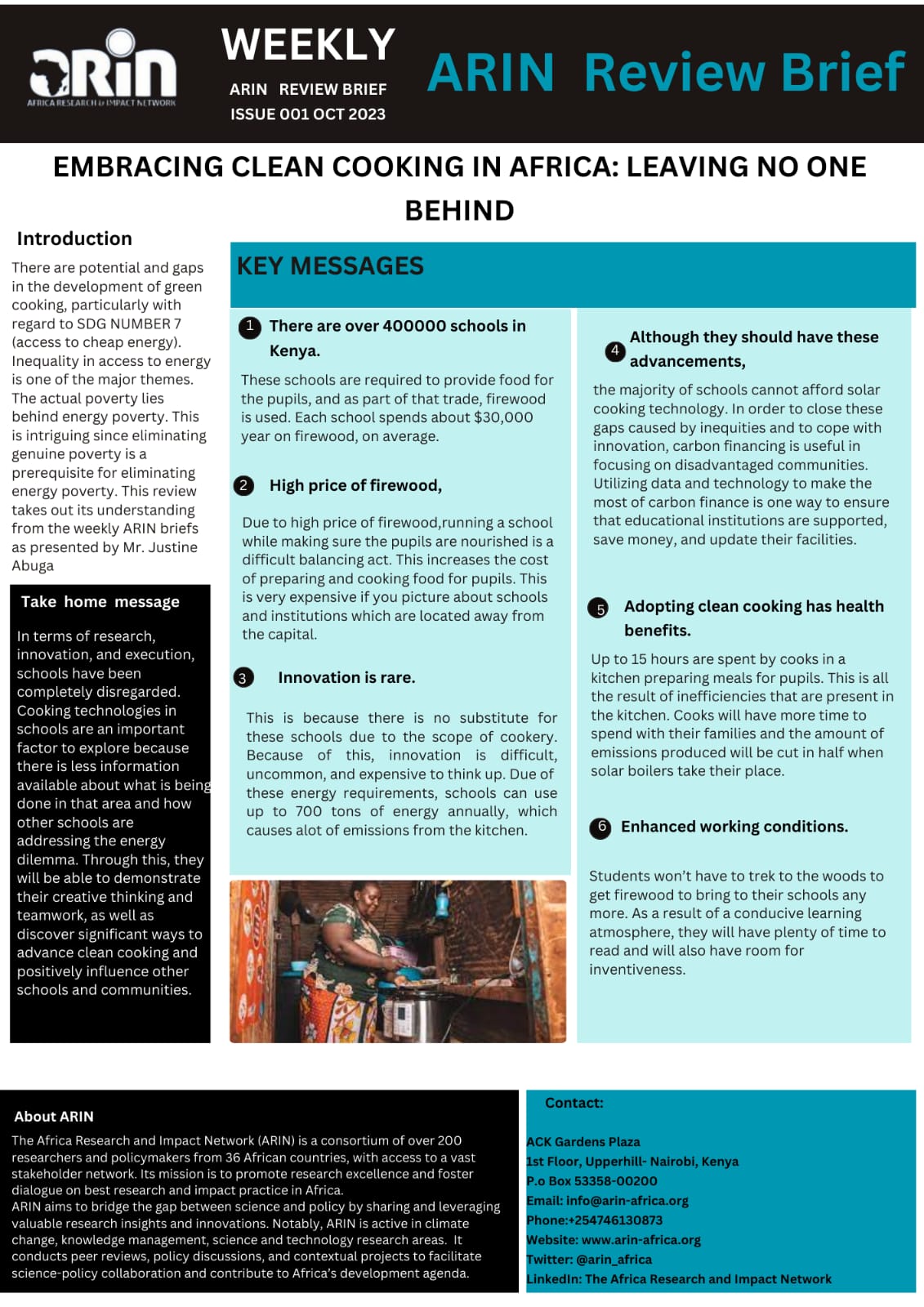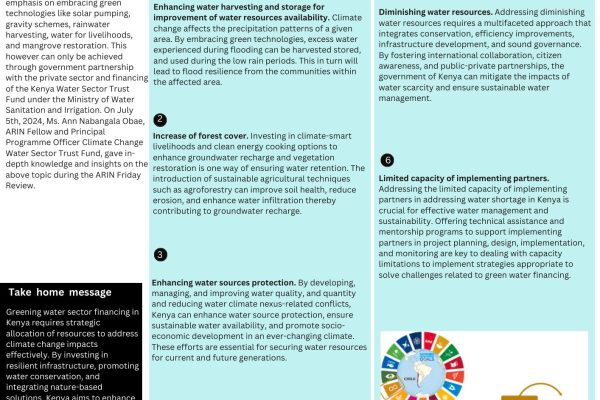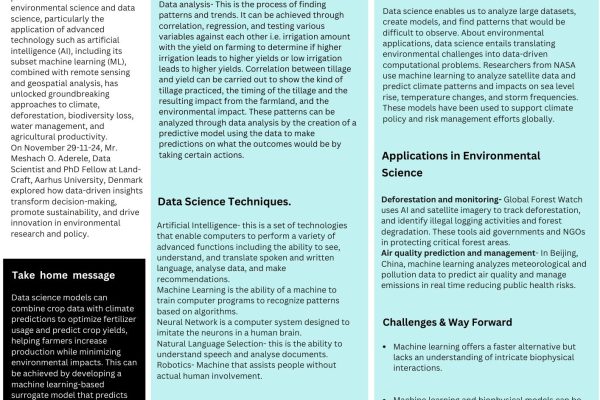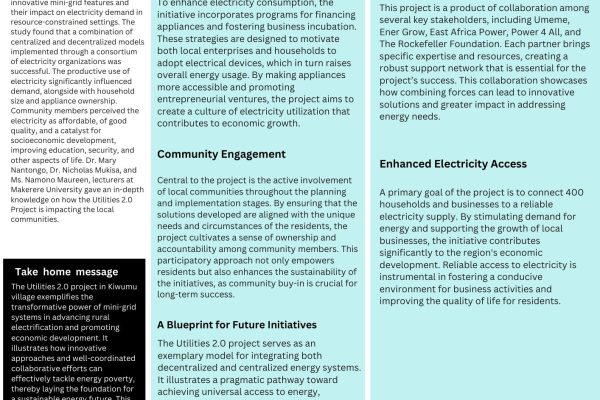Introduction.
There are potential and gaps in the development of green cooking, particularly with regard to SDG NUMBER 7 (access to cheap energy). Inequality in access to energy is one of the major themes. The actual poverty lies behind energy poverty. This is intriguing since eliminating genuine poverty is a prerequisite for eliminating energy poverty. This review takes out its understanding from the weekly ARIN briefs as presented by Mr. Justine Abuga on 4th August 2023.
Key Messages
There are over 400000 schools in Kenya. These schools are required to provide food for the pupils, and as part of that trade, firewood is used. Each school spends about $30,000 year on firewood, on average.
Due to the high price of firewood, running a school while making sure the pupils are nourished is a difficult balancing act. This increases the cost of preparing and cooking food for pupils. This is very expensive if you picture about schools and institutions which are located away from the capital.
Innovation is rare. This is because there is no substitute for these schools due to the scope of cookery. Because of this, innovation is difficult, uncommon, and expensive to think up. Due of these energy requirements, schools can use up to 700 tons of energy annually, which causes a lot of emissions from the kitchen.
Although they should have these advancements, the majority of schools cannot afford solar cooking technology. In order to close these gaps caused by inequities and to cope with innovation, carbon financing is useful in focusing on disadvantaged communities. Utilizing data and technology to make the most of carbon finance is one way to ensure that educational institutions are supported, save money, and update their facilities.
Adopting clean cooking has health benefits. Up to 15 hours are spent by cooks in a kitchen preparing meals for pupils. This is all the result of inefficiencies that are present in the kitchen. Cooks will have more time to spend with their families and the amount of emissions produced will be cut in half when solar boilers take their place.
Enhanced working conditions. Students won’t have to trek to the woods to get firewood to bring to their schools any more. As a result of a conducive learning atmosphere, they will have plenty of time to read and will also have room for inventiveness.
Recommendation
In terms of research, innovation, and execution, schools have been completely disregarded. Cooking technologies in schools are an important factor to explore because there is less information available about what is being done in that area and how other schools are addressing the energy dilemma. Through this, they will be able to demonstrate their creative thinking and teamwork, as well as discover significant ways to advance clean cooking and positively influence other schools and communities.




